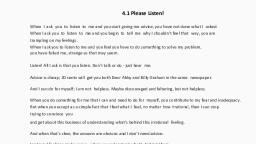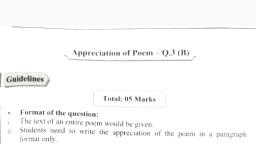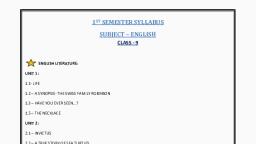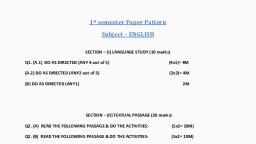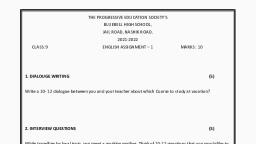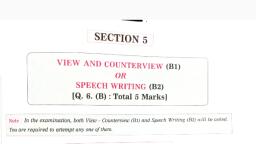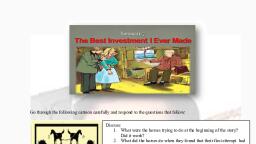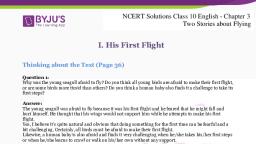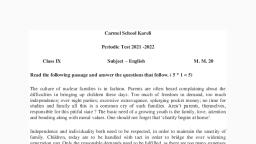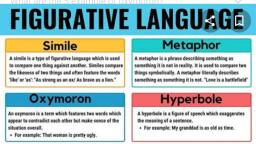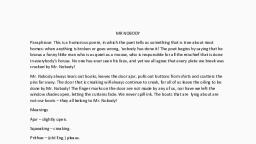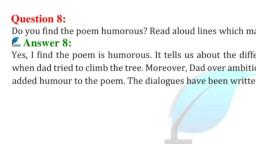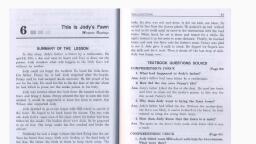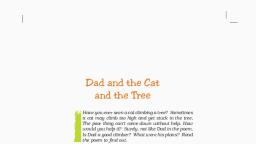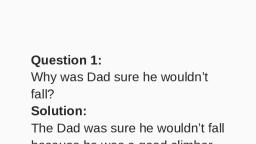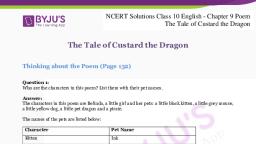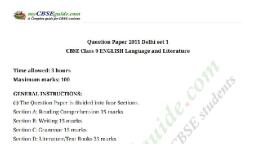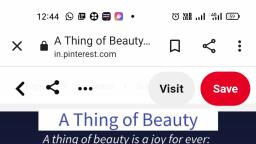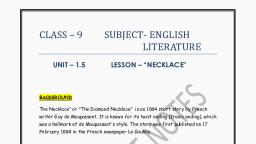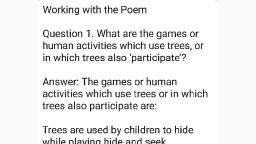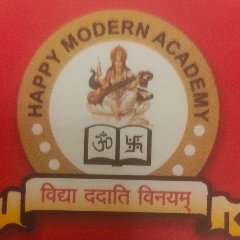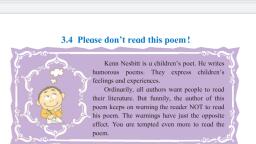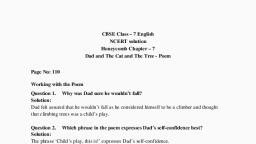Page 1 :
1.3 Have you ever seen...?, Have you ever seen a sheet on a river bed? Or a single hair from a hammer’s head?, Has the foot of a mountain any toes? And is there a pair of garden hose?, Does the needle ever wink its eye?, Why doesn’t the wing of a building fly?Can you tickle the ribs of a parasol?, Or open the trunk of a tree at all?, Are the teeth of a rake ever going to bite? Have the hands of a clock any left or right? Can the garden, plot be deep and dark?, And what is the sound of the birch’s bark?, - Anonymous, , Meanings, hose : 1. a flexible tube 2. a pair of stockings or tights., parasol : umbrella, plot : The word plot is also used to mean ‘an evil or wicked plan’., birch : a tree, , I. Find from the poem, three examples of each :, 1. Interrogation:1. Have you seen a sheet on a river bed?, 2. Does the needle ever wink its eye?, 3. Are the teeth of a rake ever going to bite?, 2. Pun:1. Has the foot of the mountain any toes?, 2. Can you tickle the ribs of a parasol?, 3. Have the hands of a clock any left or right?, 3. Personification:1. Has the foot of the mountain any toes?, 2. Does the needle ever wink its eye?, 3. Can you tickle the ribs of a parasol?, 4. Alliteration:1. Or a single hair from a hammer’s head?, 2. Or open the trunk of a tree at all?, 3. And what is the sound of the birch’s bark?
Page 2 :
II. Read the following sentences carefully. Then fill in the blanks using appropriate words from the, brackets, to make puns., (struck, numbered, too tired, developed, put down, homeless, old fashioned, reaction), 1. She had a photographic memory but never developed it., 2. He was struggling to figure out how lightning works when it struck him., 3. Every calendar’s days are number., 4. A bicycle cannot stand on its own because it is too tired., , 5. I’m reading a book on anti-gravity. It’s impossible to put down the book ., 6. I’d tell you a chemistry joke but I know I wouldn’t get a reaction., 7. What do you call Watson when Sherlock isn’t around? Homeless., 8. I would tell a history joke, but it’s too old fashioned, , III. From each line in the poem, pick out the word that is a homograph. Write its meaning in the, context of the phrase used in the poem. Then write the other meaning implied in the question. (Ans, given directly), Stanza, First, , Second, , Word, bed, Head, , One meaning, Piece of furniture, Upper part of human body, , Foot, , Part of the leg on which a person stands, or moves, A pair of stockings or tights, The organ of sight in one’s face, , ➞, , An organ in birds meant for flying, Curved bones extending from the spine, to sternum, A large storage box, Hard structures in the mouth for biting, and chewing, The end part of the arm, beyond the, wrist, An evil or wicked plan, The sharp cry of a dog or fox, , ➞, ➞, , Hose, Eye, Wing, Ribs, , Third, , Trunk, Teeth, Hands, Plot, Bark, , ➞, ➞, , ➞, ➞, , ➞, ➞, ➞, ➞, ➞, , Other meaning, Bottom of the river, sea, etc., Part of hammer with which we hit a, nail, Base of a mountain, A flexible tube, The hole at the blunt end of a needle to, pass a thread, A section or part of a building, Thin metal spokes attached to the, central stick of an umbrella, Woody stem of a tree, Long metal prongs on a garden tool, used for clearing leaves, etc., The pointers on a clock that show the, time, A small area of land, The hard outer covering of the tree, trunk, , IV. Write 2 lines from this poem which you find most humorous, Justify your choice., 1. Two lines I find the most humorous are:, [1] Can you tickle the ribs of a parasol?, I find this humorous because I can just imagine someone tickling the spokes of an umbrella and trying to, get it to respond!, [2] Does the needle ever wink its eye?
Page 3 :
I find this humorous because I think of myself holding a needle that is winking!, V. Your own response, Think, discuss and add at least one more stanza, using the same style and devices as the poet has used., It should include homographs, interrogation and the same rhythm and rhyme-scheme., , Appreciation of Poem (Point wise), , 1. Title: Have you ever seen….?, 2. Poet: An anonymous poet, 3. Theme/Central idea: This is a humorous and interesting poem. In this poem the poet has used many, homographs with different meanings for fun and enjoyment. This poem makes the reader enjoy the play, of words and appreciate how different words can have different meanings, 4. Rhyme Scheme: aabb., 5. Figure of Speech: Interrogation: Can the garden plot be deep and dark? The question is thought, provoking., 6. Special Feature/Implied meaning, etc.: This poem is very imaginative and humorous. It is full of puns, and it makes the reader realise the beauty of the puns used and it creates a play on words that is funny, and appealing, 7. Favourite lines: Are the teeth of a rake ever going to bite?, Have the hands of a clock any left or right?, 8. Why I like/don’t like the poem: I like the poem because it has a humorous appeal., , Appreciation of Poem (Paragraph Format), , The poem ‘Have you ever seen….?’ is written by an anonymous poet. This is a humorous and interesting, poem. In this poem the poet has used many homographs with different meanings for fun and, enjoyment. This poem makes the reader enjoy the play of words and appreciate how different words can, have different meanings. The rhyme scheme of the poem is aabb. There are many figures of speech and, one of them is Interrogation. The lines ‘Can the garden plot be deep and dark?’ is an example of, Interrogation. The question is thought provoking. This poem is very imaginative and humorous. It is full, of puns and it makes the reader realise the beauty of the puns used and it creates a play on words that is, funny and appealing. My favourite lines are ‘Are the teeth of a rake ever going to bite? Have the hands of, a clock any left or right?.’ I like the poem because it has a humorous appeal.





